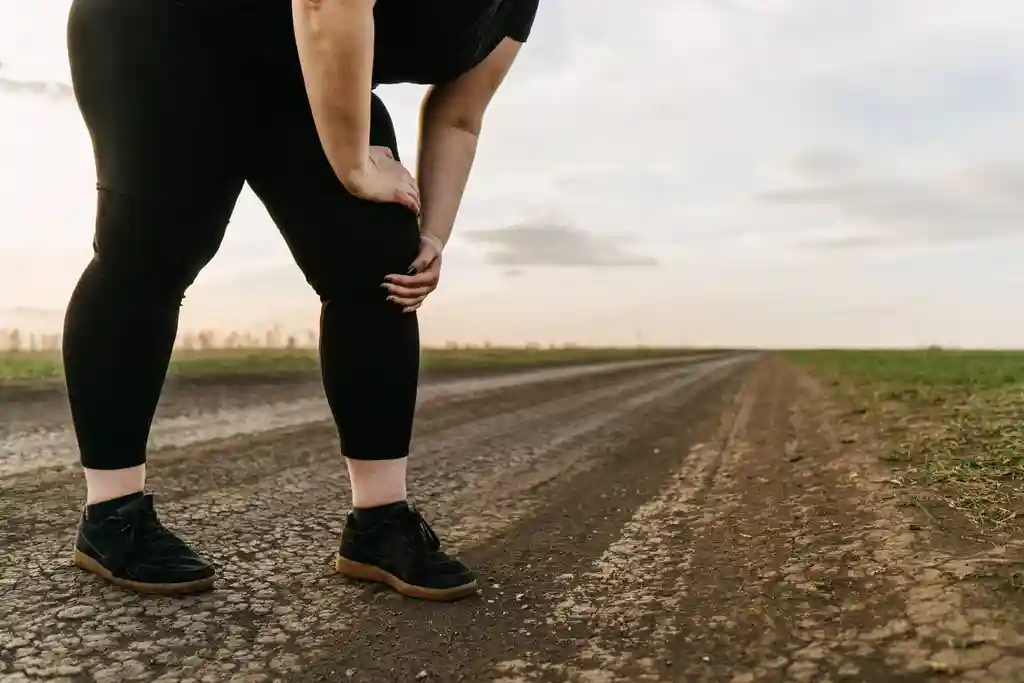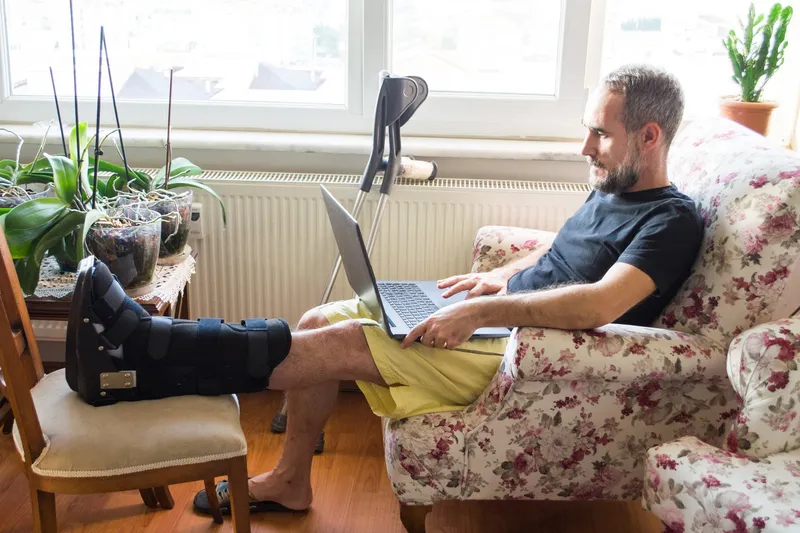
When patients and their doctors talk about pain relief strategies, one area often gets overlooked: weight management. While working on a weight management plan likely won’t offer instant relief, research seems to indicate there is a strong connection between carrying extra pounds and how much we hurt – and even modest weight loss can help turn things around.
If your doctor has never mentioned this to you, it may be because doctors often feel uncomfortable talking about weight in the exam room, especially when the visit is focused on a pain problem. Talking about body weight is often a delicate topic, and physicians may steer clear of the subject out of fear of hurting a patient’s feelings or coming across as insensitive. I know that I feel more comfortable discussing issues around weight when my patients bring it up first. And, starting a conversation about weight loss when a patient comes to you for help with their pain can give someone the impression that you are discounting the severity of their pain problem, overlooking other relevant factors contributing to the pain, or are somehow blaming them for having the problem, when none of these issues could be further from the truth. So, this can be a sensitive topic. A positive doctor-patient relationship, with a high level of trust, is often needed to get the ball rolling.
But it’s an important conversation to have. Because being overweight can have a significant impact on how we experience pain. Extra body weight increases mechanical forces on the frame of the body, including the knee and hip joints, the spine, and supporting muscle groups, which can cause added wear and tear. Studies suggest that dropping just one pound can reduce four pounds of pressure on the knees, and that for patients with arthritis, the more weight they lose, the better their pain relief and function with daily activities. Extra weight, especially in the abdominal area, seems to increase levels of inflammation in susceptible parts of the body like aching joints.
And it’s not just arthritis – conditions like fibromyalgia, some bone and muscle disorders, and even migraines show reductions in pain and improvements in quality of life after weight loss. Being overweight has also been shown to be a risk factor for carpal tunnel syndrome, as well as for developing chronic pain problems after injuries and motor vehicle accidents. One study of 800 women found that losing an average of eleven pounds could reduce in half the odds of developing arthritis of the knees.
If you struggle with your weight, I understand that hearing about the connection between weight and pain can be discouraging. You’re hearing me say that your pain could be improved with weight loss, but the pain might be one of the things that’s making weight loss difficult! The truth is, losing weight is difficult when you live with pain. But not impossible. It just may take some extra time, extra planning, and extra patience. Here are a few things I’d suggest:
Visualize success. Instead of focusing on losing the weight on the scale, start to visualize how you would like to see your body look and feel. Avoid comparing yourself to others or filtered pictures of celebrities on social media, but rather think in terms of how you would like your best version of you to look, not necessarily just in front of a mirror, but when moving about and interacting with the world. Many successful athletes have relied on visualization as a tool for success because it helps prepare their brains to communicate more effectively with their bodies when it is time to compete. Keep that special visual of yourself in the back of your mind as you make your way.
Ask your doctor for guidance. I’m sure I don’t have to tell you that weight loss depends on nutrition and lifestyle modification. That’s easy to say, but it can be hard to put into action. Talk to your doctor to get direction on how to make changes. They may bring in other specialists, like nutritionists and life coaches. In some cases, they may suggest considering bariatric surgery. Also, keep in mind that community and regional medical centers may also offer special programs and classes for weight loss.
Get help with exercise. Exercise can be a challenge for pain patients. You may need help from movement specialists with expertise in working with patients in pain. Avoid the trap of overdoing it to lose weight more quickly, as this will only flare-up your pain and set you back. Be gentle with your body as you try to gradually do more in the way of exercise. Give it the time it needs. I often tell my patients that reaching weight loss goals is seventy-five percent based on sound nutrition habits and only twenty-five percent based on exercise, so no need to get too hung up on what you can’t do in the gym.
Celebrate small wins. I often recommend that my patients break up their weight loss goals into smaller steps, such as taking it five pounds at a time. Once the first five pounds are lost, recognize the positive impact this can have on how you feel. Acknowledge your win! And then you can transition to working on the next five pounds. Because no matter how you approach weight loss, results can take time – so you’ll need to be patient with the process. I know it’s tempting, but avoid the trap of trying to do too much too quickly. Instead, take a gradual approach. Your weight loss plan is a valuable long-term path toward less pain. Be sure to consult your physicians before embarking on any new diet or weight loss programs – and ask them to partner with you in your goals. You’ll be more likely to succeed if you have your doctors – and friends and family – encouraging you and keeping you accountable to your goals.
Important:The opinions expressed in WebMD Blogs are solely those of the User, who may or may not have medical or scientific training. These opinions do not represent the opinions of WebMD. Blogs are not reviewed by a WebMD physician or any member of the WebMD editorial staff for accuracy, balance, objectivity, or any other reason except for compliance with our Terms and Conditions. Some of these opinions may contain information about treatments or uses of drug products that have not been approved by the U.S. Food and Drug Administration. WebMD does not endorse any specific product, service or treatment.
Do not consider WebMD Blogs as medical advice. Never delay or disregard seeking professional medical advice from your doctor or other qualified healthcare provider because of something you have read on WebMD. You should always speak with your doctor before you start, stop, or change any prescribed part of your care plan or treatment. WebMD understands that reading individual, real-life experiences can be a helpful resource, but it is never a substitute for professional medical advice, diagnosis, or treatment from a qualified health care provider. If you think you may have a medical emergency, call your doctor or dial 911 immediately.









